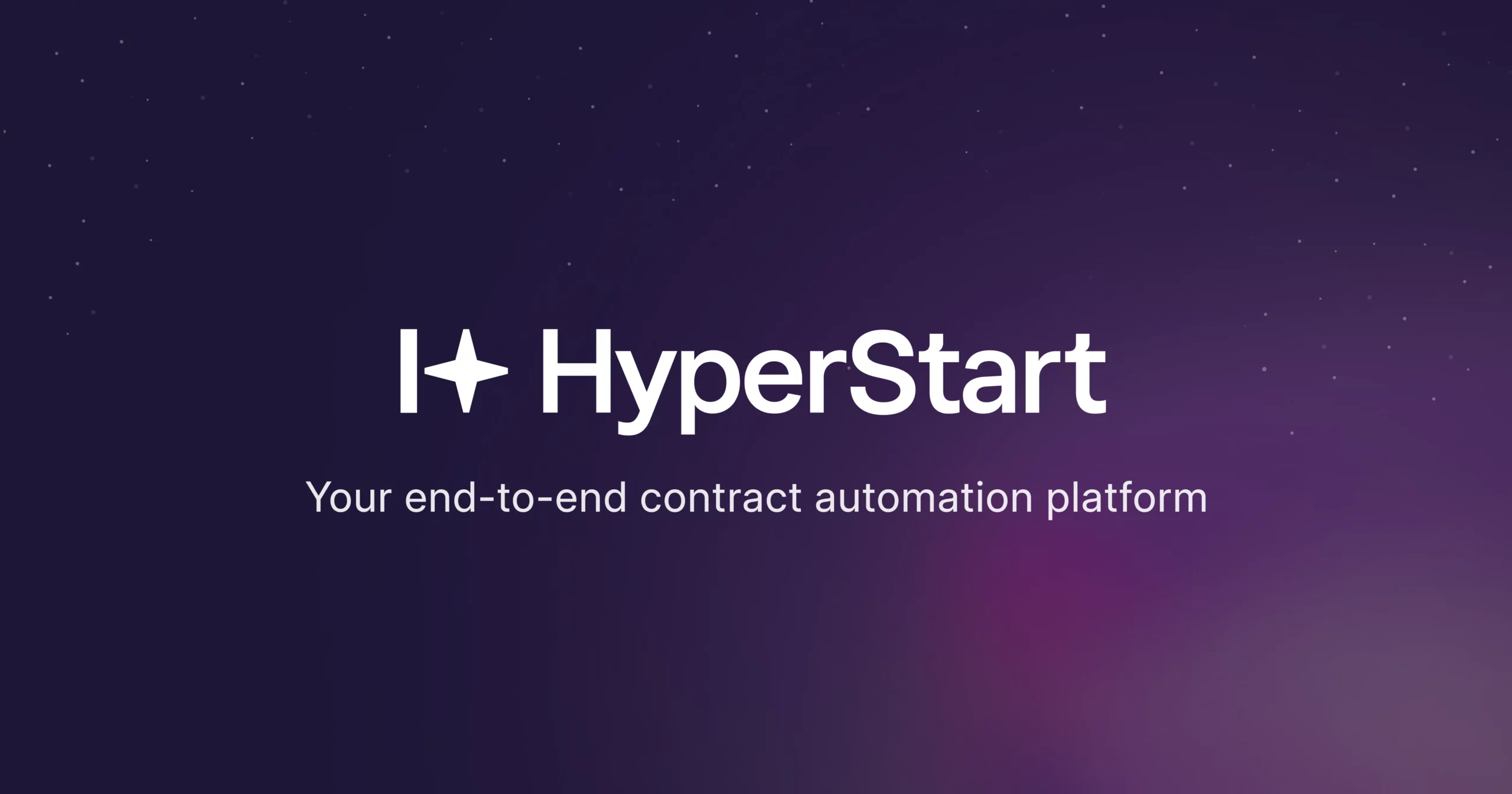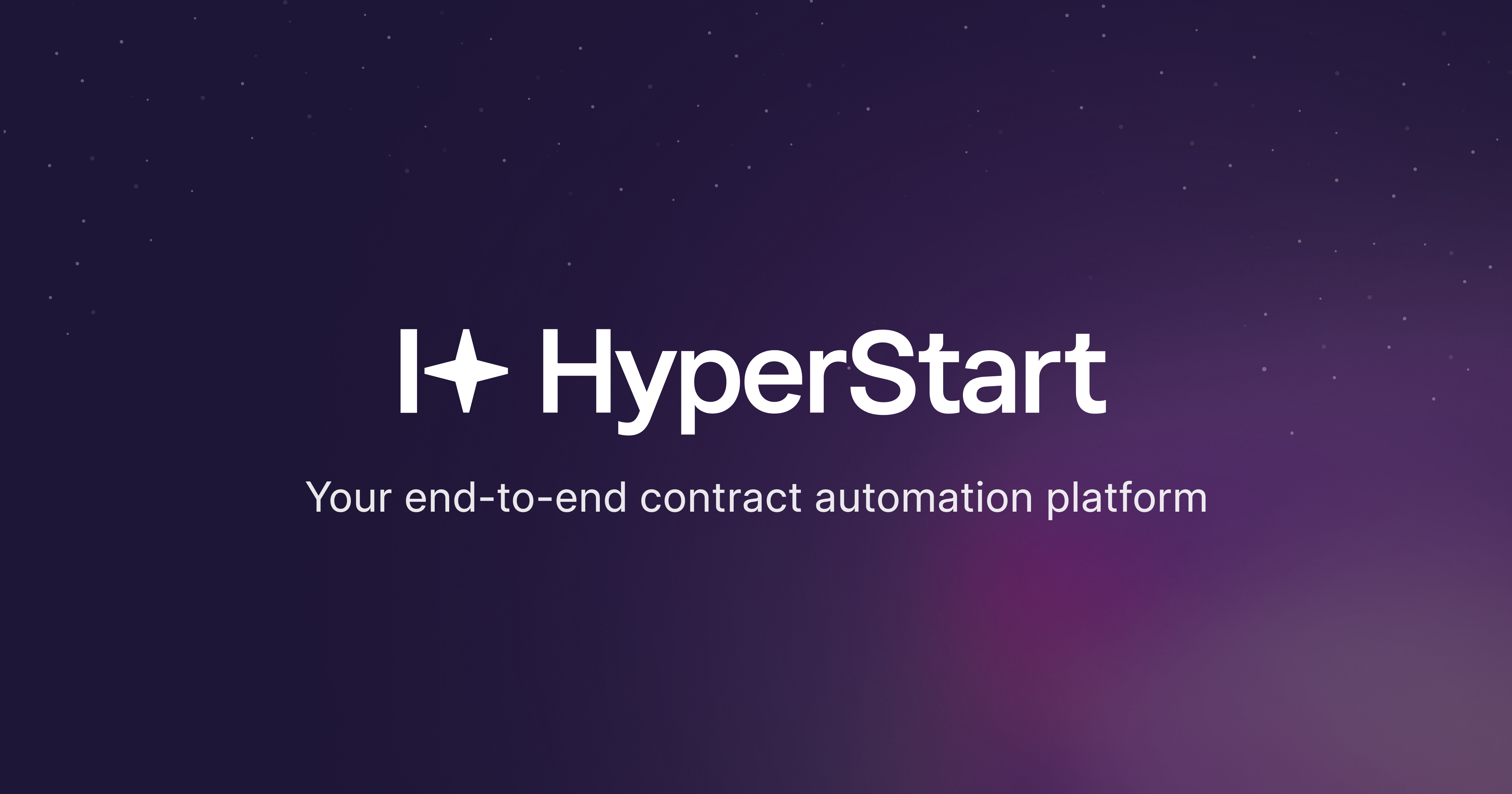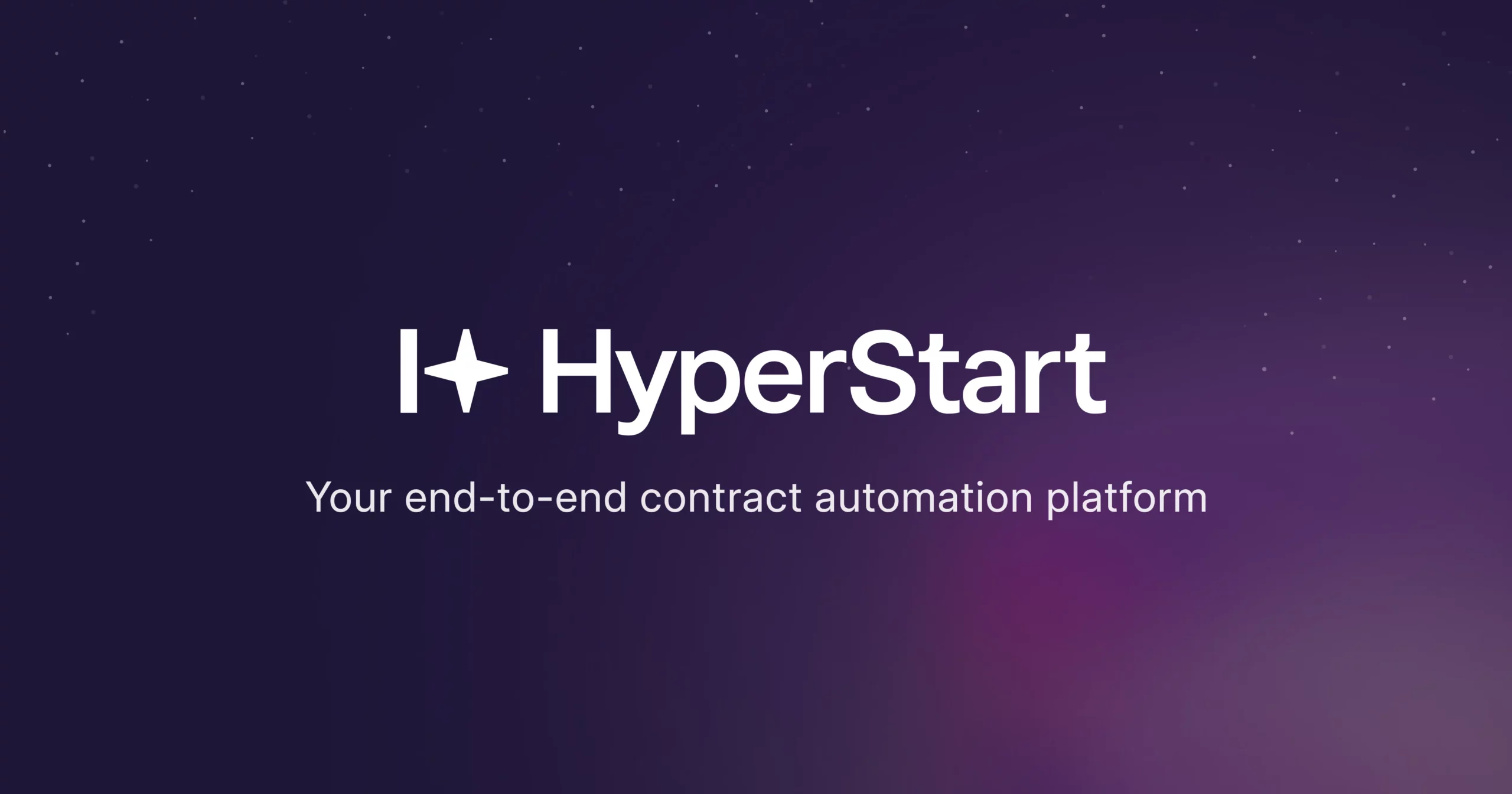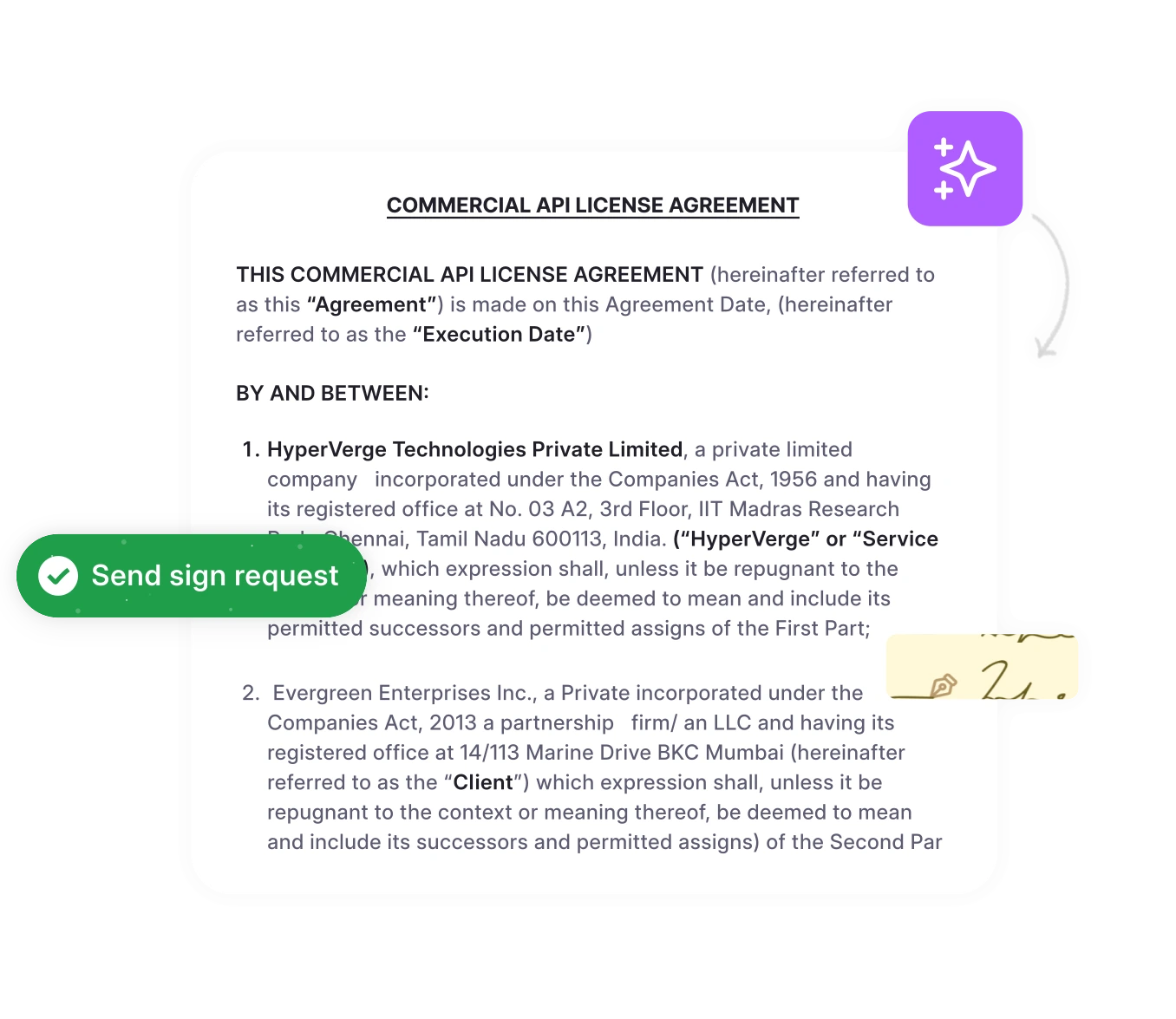How do contract disputes get resolved if things go sideways? The choice to include an arbitration clause gives you the option to quickly and privately resolve.
This guide examines comprehensive arbitration rules under the Federal Arbitration Act, the strategic benefits of including the clause, and best practices for drafting provisions.
Let’s get started.
What is an arbitration clause?
An arbitration clause in a contractual agreement requires parties to resolve disputes through binding arbitration rather than traditional court litigation.
But, not all arbitration clauses work the same way. The American Arbitration Association offers standardized commercial arbitration rules, types, and frameworks.
Breaking down types
Optional vs Mandatory Arbitration
With mandatory arbitration clauses, you don’t get a choice. Optional clauses let parties decide after a dispute emerges whether they’d rather arbitrate or litigate.
Binding vs. Non-binding Arbitration:
The arbitrator’s decision is final and enforceable in binding arbitration. In non-binding arbitration, the decision is a recommendation, and parties can still pursue litigation if they are not satisfied.
Also read here for Sample Arbitration Clauses
What is alternative dispute resolution?
Alternative dispute resolution encompasses all the ways parties can resolve conflicts without traditional courtroom litigation—arbitration, mediation, negotiation. These processes use neutral third parties in private settings, typically costing less and moving faster than court proceedings.
ADR gives parties flexibility to customize procedures to their needs while keeping sensitive information confidential.
How does arbitration differ from litigation?
- The average cost of arbitration is $43,000 while it rises to $73,000 for litigation
- Consumer disputes are resolved in 321 days through arbitration while it typically takes 439 days to litigate and resolve
- International commercial arbitration matters take 11-22 months to resolve while it takes 2+ years for court trials to arrive at a decision.
Furthermore, AAA’s 2025 rule changes establish virtual hearings as the default, reducing potential costs further
But cost isn’t everything. Consider what else changes:
- Privacy matters: Unlike arbitration, litigation plays out in public.
- Who decides: You’re not guaranteed who judges your case with litigation. Alternatively, you can select one or more arbitrators with deep expertise in your field.
- Discovery differences: Here’s where arbitration diverges from litigation. You won’t spend months in discovery, deposing everyone who ever touched the contract. Limited discovery speeds things up, but it can hurt if you need extensive evidence to prove your case.
The significance of arbitration clauses
Well-drafted arbitration clauses deliver predictable benefits:
- Speed and cost control: You typically spend less time, energy, and resources when arbitrating.
- Confidentiality protection: Arbitration is a private process that keeps competitive information, settlement terms, and client relationships from public record.
- Expertise on demand: Arbitration allows you to select someone with specialized industry knowledge.
- Finality brings closure: With limited avenues for appeal, the arbitration award is usually final.
Risks that keep lawyers up at night
Here are pitfalls that legal teams could encounter with arbitration:
- Discovery limitations: The discovery process is limited. You may not have everything you need to build the strongest case.
- No meaningful appeals: Spurious campaigns have shown how plaintiffs’ firms can abuse the arbitration clause, filing identical claims to pressure settlements.
- Arbitrator bias concerns: Arbitrators appointed may be picked from a limited pool and may have a financial interest in matters.
- Class action complications: Forced arbitrations often include class action waivers that prevent parties from participating in opposing systemic issues.
Arbitration clauses that work
Governing law around arbitration
Pathological arbitration clauses create confusion rather than clarity. A clause stating ‘disputes shall be resolved through arbitration in London’ fails to specify whether London is the seat or venue—a critical distinction affecting governing law and procedural rules.
Specify the rules of an established institution, such as the American Arbitration Association (AAA), JAMS, or the International Chamber of Commerce (ICC). Each provides clear frameworks.
- Arbitrator selection: One arbitrator moves faster and costs less, while a panel can bring diverse perspectives. Clearly state whether the dispute will be heard by a single arbitrator or a panel.
- Seat and venue: Define the geography and the jurisdiction thereof whose procedural laws will govern the arbitral proceedings.
- Language and costs: Specify the language of the arbitration proceedings and how parties split costs. Will one party pay? Do both contracting parties split?
Sample clause
“Any dispute arising out of this contract shall be finally resolved by arbitration under the LCIA Rules. The seat of arbitration shall be London, England. The governing law shall be English law.”
Scope decisions that count
Be crystal clear about scope. Any controversy or claim arising out of or relating to this contract—casts a wide net that precludes parties from arguing about coverage later.
The scope makes provision for the boundaries, inclusions, and exclusions.
- What does it cover: The clause must make provision for future disputes or specific types.
- Common exceptions: Consider carve-outs for specific types of claims. For example, in intellectual property disputes, parties may seek provisional remedies like injunctions, or small claims court actions.
Procedural details
- Discovery boundaries: Set clear boundaries on depositions, document requests, and timelines.
- Confidentiality isn’t automatic: Include specific language around the confidentiality of the proceedings and the award.
Enforceability of arbitration clauses
The Federal Arbitration Act (FAA) in the United States governs the enforceability of the arbitration clause. State laws and industry-specific regulations also play a role, as does international law. For example, the New York Convention, for cross-border contracts.
Common barriers to enforcement
- Unconscionability: One-sided clauses can be deemed unenforceable. To avoid this, conspicuously place the clause within the contract and draft it with mutual obligations.
- Mutual assent failures: Both parties must agree. If only one party can compel arbitration while the other can’t, it may fail.
- Fraud or duress: If a party is fraudulently induced to sign an agreement containing an arbitration clause, the clause becomes unenforceable.
- Waiver through conduct: A party litigating for an extended time may forfeit its right to arbitration.
Industry-specific considerations
While the core principles remain the same, different sectors approach arbitration differently. Here’s a brief look at how different sectors approach them.
| Industry | Use Cases | Sample Clause Elements |
| Technology and SaaS | IP disputes, data breaches, international user considerations, and platform-specific rules. | IP carve-outs and said rules for international users. |
| Employment Contracts | EEOC charges, class action waivers, severance considerations, and state law restrictions. | Provisions related to mandatory arbitration for employment claims and class action waivers. |
| Construction and Real Estate | Multi-party disputes, lien rights, and emergency relief. | Hybrid clauses that combine arbitration with expert determination or allow for emergency relief. |
| Financial Services | FINRA requirements, consumer protection laws, and cross-border transactions. | Clauses that comply with industry-specific regulations and consumer protection laws. Some include mediation clauses as a first step before arbitration. |
Manage the arbitration clause efficiently
Track, monitor, and optimize dispute resolution provisions across all contracts.
Book a DemoManaging arbitration clauses in your contract portfolio
Here’s where theory meets practice. Managing hundreds or thousands of contracts means you need to prioritize systems over good faith agreements.
Drafting practices that scale
- Clear language: Use plain English, define terms, and specify every procedural detail that matters.
- Bilateral provisions: Make sure both parties are equally bound to avoid one-sided provisions.
- Multi-party reality: Explicitly address how multi-party disputes will be handled.
Also read, How to Write a Contract
Obligation tracking challenge
Managing a large volume of contracts requires a centralized, automated tracking. Here’s how a CLM solution helps:
- Centralized visibility: A single source of truth allows legal teams to know which contracts contain the arbitration clause, what type, and what they cover. This makes it easy to find them with an AI-powered search.
- Automated obligation tracking: A key breakthrough in contract management is automating metadata extraction. With HyperStart, companies can track critical contract obligations and get automated reminders for renewal dates.
- Risk assessment: An automated system allows for contract risk assessment, helping legal teams proactively identify and manage key clauses.
HyperStart helps legal teams review contracts and track key clauses with streamlined, AI-powered CLM solutions. Our platform provides a centralized workflow library for consistent drafting, version control, automated metadata extraction, and obligation tracking.
Never miss critical clause details
AI-powered clause extraction and analysis for smarter contract management
Book a DemoThe bottom line for legal teams
When drafted and managed correctly, the arbitration clause can lead to significant cost savings, faster resolutions, and trusting relationships. The key to success lies in standardizing these clauses according to the language you prefer, tracking them in a centralized repository, and using technology to ensure compliance and mitigate risk.
When evaluating contract management software for your organization, consider a partner who can run and scale with you in the long haul.











